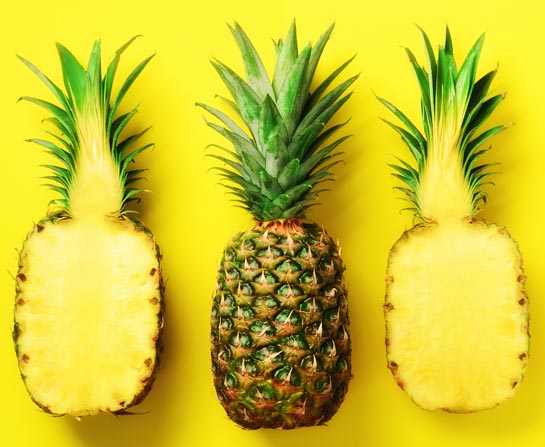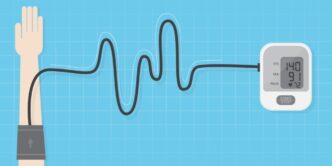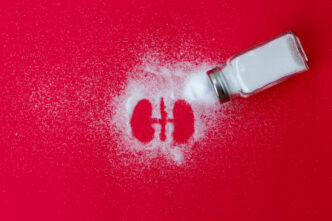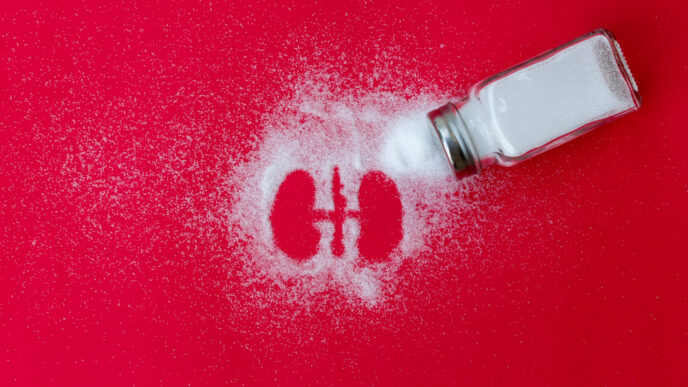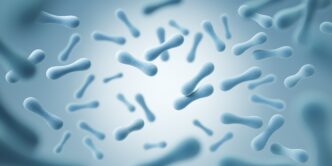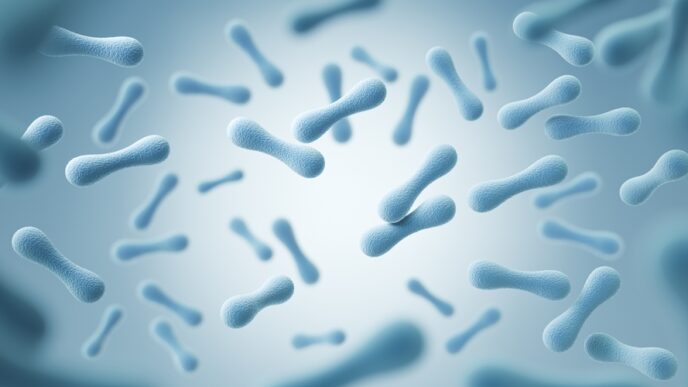Your morning coffee perks you up, but what’s it doing to your heart and kidneys? More than you might expect. In this article, a pharmacist unpacks the surprising ways caffeine can affect your body — from blood pressure spikes to strain on your kidneys.
WORDS LIM KELVIN
 FEATURED EXPERT FEATURED EXPERTLIM KELVIN Masters in Diabetes Care Pharmacist & Principal Trainer CARiNG Pharmacy |
A DRINK AFTER OUR HEART?
In August 2022, the European Journal of Preventive Cardiology published the findings of a retrospective study on the impact of coffee subtypes—ground, instant, decaffeinated—on cardiovascular disease, arrhythmias, and death.
This study utilized data from the UK Biobank, obtained from 449,563 participants that were followed over 12 years.
The investigators concluded that:
- Decaffeinated, ground, and instant coffee, particularly at 2 to 3 cups a day, were associated with significant reductions in incident cardiovascular disease and mortality.
- Ground and instant, but not decaffeinated, coffee was associated with reduced arrhythmia.
|
How Caffeine May Protect Our Heart
- Theory 1. The act of caffeine binding to adenosine receptors A1 and A2A also has some protective benefits that protect against arrhythmia.
- Theory 2. Caffeine can trigger increased release of nitric oxide from the endothelium that lines the inside of blood vessels. Nitric oxide may have protective benefits against cardiovascular diseases.
- Theory 3. Coffee contains polyphenols, naturally occurring compounds unique to plants that can act as antioxidants.
Also, coffee contains polyphenols such as chlorogenic acid and other phenolic compounds, as well as magnesium and trigonelline.
These substances have been shown to:
- Lower serum cholesterol levels
- Improve endothelial function
- Reduce inflammation in women with diabetes
DOES COFFEE HAMMER OUR BLOOD PRESSURE?
- Caffeine in coffee can increase our blood pressure.
- However, this effect is usually temporary in a healthy person, especially when they continue to drink coffee over a long period of time.
- This is because the body can quickly develop tolerance to caffeine.
However, Too Much Coffee Can be Harmful to People with Severe High Blood Pressure
- A team of Japanese investigators published their findings in 2023, in which they found that coffee can reduce the risk of cardiovascular diseases in people with normal to mild high blood pressure or hypertension.
- However, in people with severe hypertension, heavy coffee consumption (more than 2 cups a day) is associated with increased risks of cardiovascular diseases and death related to these diseases!
- One possible explanation for this is that people with hypertension are more vulnerable to the effects of caffeine. For people with severe hypertension, the harmful effects of caffeine may outweigh the protective effects.
COFFEE AND OUR KIDNEYS
A single gene may exist in a few different forms, each form contains slightly different DNA sequences.
Too Much Coffee Can be Harmful to the Kidneys of People with CYP1A2 Gene
The results of an Italian study, published in 2023, found that drinking 3 or more cups of coffee a day can be harmful for people with a certain type of CYP1A2 gene: those with AC and CC genotypes of CYP1A2 at rs762551.
This CYP1A2 gene is involved in regulating the production of an enzyme that helps to break down a variety of substances, including caffeine.
However, people with that type of CYP1A2 gene are slow metabolizers of caffeine.
Coffee may increase their risk of developing kidney problems such as:
- Albuminuria, also called proteinuria, due to the presence of high levels of a protein called albumin in the urine. It is a sign that the filtration system of the kidneys may not be working properly.
- Glomerular hyperfiltration, a term to describe that the filtration system of the kidneys is taking place at a higher rate or higher amount per kidney unit (nephron) than normal. This is another sign that the kidneys may not be functioning properly.
- Renal hypertension, or renovascular hypertension, which describes high blood pressure in the kidneys due to narrowing of the arteries that carry blood to these organs.
HOWEVER, THINGS ARE NOT SO STRAIGHTFORWARD AS “COFFEE IS BAD!”
You see, there are many different types of coffee, not to mention the different methods of coffee preparation.
Western Coffee
- Uses exclusively Arabica
- Beans roasted over low temperatures.
- One shot contains typically 9 g of coffee powder.
Local Coffee
- Usually uses Robusta beans, which contains higher amounts of caffeine.
- Beans roasted over high heat.
- Additives such as margarine, butter, sugar, etc are common to enhance flavour.
- Bitterness and ‘charred’ flavours are preferred.
So, What’s the Issue Here?
- Well, coffee studies done in the UK and Japan, some of which are highlighted here, involved participants that drank almost exclusively Arabica, espresso-styled coffee. Even their instant coffee is roasted the usual European way.
- Meanwhile, most of our local coffees—whether it’s kopi-O, white coffee, cham, etc—tend to use Robusta beans that have been charred over high heat. Often, margarine, butter, sugar, and other additives are added to enhance the flavour.
Hence, the benefits and side effects observed in these studies may not apply to our favourite local coffee!
Furthermore, the differences in beans, as well as the presence of additives and the way the beans were roasted could affect the potency of the phenolic compounds and antioxidant effects present in a cup of coffee.
WHAT DOES THIS MEAN FOR YOU?
Undoubtedly, things can get confusing with so much information about coffee out there that sometimes make it challenging for us to determine how much coffee we can drink without affecting our health.
Based on what research has suggested so far about coffee, the following are my recommendations.
If You Are a Regular Coffee Drinker
- Stick to between 2 and 5 cups of single shot coffee daily. This amount doesn’t seem to harm most individuals.
- People with severe hypertension, however, may want to quit coffee or limit themselves to 1 cup a day.
- People with other health conditions or are pregnant can consult their doctor on how much coffee they can safely consume.
- If you’re worried that you may be a slow metabolizer of caffeine, the study on that matter suggested that drinking 2 cups or fewer coffee a day is fine.
If You Don’t Drink Coffee but Are Curious about Its Health Benefits
It’s fine to enjoy coffee if you love the flavour and aroma, but I’d strongly advise against taking up coffee-drinking for health purposes.
Based on current research data that we’ve had on coffee, we have not established that coffee-drinking is an effective way to prevent or reduce the risk of various health issues!
If You Are a Heavy Drinker and Want to Quit or Cut Down
- Your brain upregulates the number of adenosine receptors whenever you use coffee to block the adenosine.
- This increased number of receptors takes at least 1 to 2 weeks to go back down to normal even after you have stayed caffeine free.
- You can eventually wean off caffeine, but the process needs to be done gradually to avoid caffeine crashes—your adenosine receptors will experience withdrawal if caffeine is taken away abruptly.
| A caffeine crash happens when the effects of caffeine wear off and we abruptly feel extremely tired and sleepy. |
So, if you want to reduce or quit your coffee, do it over a long weekend or wait a few days for the ‘detox’ process to kick in.
Also, if you absolutely cannot do without caffeine, you might consider slowly switching over to green tea. Although green tea contains caffeine as well, it has NOT been shown to have a deleterious effect on people with severely high blood pressure.
| This article is part of our series on nutrition and how certain foods can have an impact on our health and quality of life. |
References:
- Chieng, D., & Kistler, P. M. (2022). Coffee and tea on cardiovascular disease (CVD) prevention. Trends in cardiovascular medicine, 32(7), 399–405. https://doi.org/10.1016/j.tcm.2021.08.004
- van Dam, R. M., Hu, F. B., & Willett, W. C. (2020). Coffee, Caffeine, and Health. The New England journal of medicine, 383(4), 369–378. https://doi.org/10.1056/NEJMra1816604
- Mesas, A. E., Leon-Muñoz, L. M., Rodriguez-Artalejo, F., & Lopez-Garcia, E. (2011). The effect of coffee on blood pressure and cardiovascular disease in hypertensive individuals: a systematic review and meta-analysis. The American journal of clinical nutrition, 94(4), 1113–1126. https://doi.org/10.3945/ajcn.111.016667
- Chieng, D., Canovas, R., Segan, L., Sugumar, H., Voskoboinik, A., Prabhu, S., Ling, L. H., Lee, G., Morton, J. B., Kaye, D. M., Kalman, J. M., & Kistler, P. M. (2022). The impact of coffee subtypes on incident cardiovascular disease, arrhythmias, and mortality: long-term outcomes from the UK Biobank. European journal of preventive cardiology, 29(17), 2240–2249. https://doi.org/10.1093/eurjpc/zwac189
- Klatsky, A. L., Hasan, A. S., Armstrong, M. A., Udaltsova, N., & Morton, C. (2011). Coffee, caffeine, and risk of hospitalization for arrhythmias. The Permanente journal, 15(3), 19–25. https://doi.org/10.7812/TPP/11-020
- Lopez-Garcia, E., van Dam, R. M., Qi, L., & Hu, F. B. (2006). Coffee consumption and markers of inflammation and endothelial dysfunction in healthy and diabetic women. The American journal of clinical nutrition, 84(4), 888–893. https://doi.org/10.1093/ajcn/84.4.888
- Teramoto, M., Yamagishi, K., Muraki, I., Tamakoshi, A., & Iso, H. (2023). Coffee and green tea consumption and cardiovascular disease mortality among people with and without hypertension. Journal of the American Heart Association, 12(2), e026477. https://doi.org/10.1161/JAHA.122.026477
- Hartley, T. R., Sung, B. H., Pincomb, G. A., Whitsett, T. L., Wilson, M. F., & Lovallo, W. R. (2000). Hypertension risk status and effect of caffeine on blood pressure. Hypertension (Dallas, Tex. : 1979), 36(1), 137–141. https://doi.org/10.1161/01.hyp.36.1.137
- Mahdavi, S., Palatini, P., & El-Sohemy, A. (2023). CYP1A2 genetic variation, coffee intake, and kidney dysfunction. JAMA network open, 6(1), e2247868. https://doi.org/10.1001/jamanetworkopen.2022.47868



